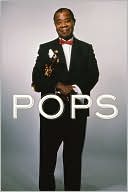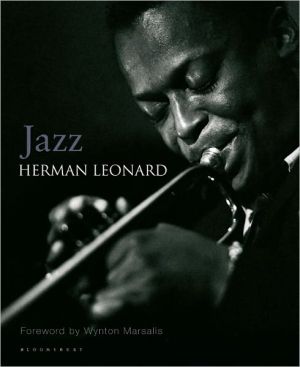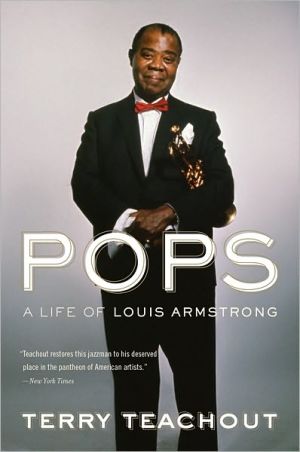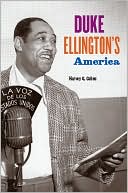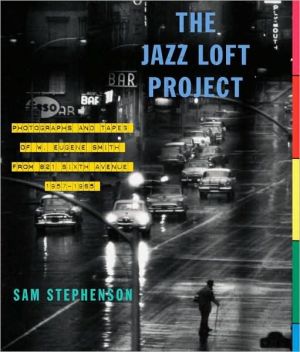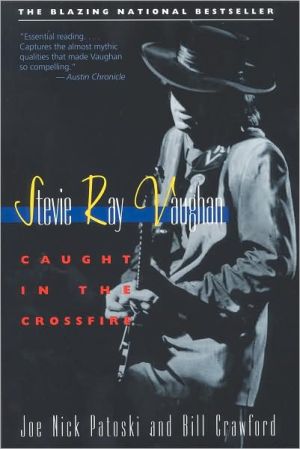Escaping the Delta: Robert Johnson and the Invention of the Blues
Robert Johnson's story presents a fascinating paradox: Why did this genius of the Delta blues excite so little interest when his records were first released in the 1930s? And how did this brilliant but obscure musician come to be hailed long after his death as the most important artist in early blues and a founding father of rock 'n' roll? Elijah Wald provides the first thorough examination of Johnson's work and makes it the centerpiece for a fresh look at the entire history of the blues. He...
Search in google:
The life of blues legend Robert Johnson becomes the centerpiece for this innovative look at what many consider to be America's deepest and most influential music genre. Pivotal are the questions surrounding why Johnson was ignored by the core black audience of his time yet now celebrated as the greatest figure in blues history.Trying to separate myth from reality, biographer Elijah Wald studies the blues from the inside — not only examining recordings but also the recollections of the musicians themselves, the African-American press, as well as examining original research. What emerges is a new appreciation for the blues and the movement of its artists from the shadows of the 1930s Mississippi Delta to the mainstream venues frequented by today's loyal blues fans. The Washington Post In Escaping the Delta, he sets out to explore "the paradox of [Robert] Johnson's reputation: that his music excited so little interest among the black blues fans of his time, and yet is now widely hailed as the greatest and most important blues ever recorded." Wald sees this paradox as symbolizing a larger gulf between the blues as heard by the black audience in its own time -- who knew it as hip, popular music -- and a later, mostly white audience that romanticized the blues as "the heart-cry of a suffering people." Not a book about Johnson per se, Escaping the Delta is a thoughtful, impassioned historical essay about that gulf. — Daniel Cooper
AcknowledgmentsIntroduction1What is Blues?32Race Records: Blues Queens, Crooners, Street Singers, and Hokum143What the Records Missed434Hollers, Moans, and 'Deep Blues'705The Mississippi Delta: Life and Listening836A Life Remembered1057The Music1268First Sessions, Part One: Going for Some Hits1319First Sessions, Part Two: Reaching Back14910Second Sessions: The Professional16611The Legacy18612Jump Shouters, Smooth Trios, and Down-Home Soul19313The Blues Cult: Primitive Folk Art and The Roots of Rock22014Farther On Up the Road: Wherefore and Whither the Blues250Afterthought: So What About the Devil?265Appendix277Notes281Bibliography317Index323
\ Starred Booklist on Escaping the Delta“If you read only one book about blues...read this one.”\ \ \ \ \ The Washington PostIn Escaping the Delta, he sets out to explore "the paradox of [Robert] Johnson's reputation: that his music excited so little interest among the black blues fans of his time, and yet is now widely hailed as the greatest and most important blues ever recorded." Wald sees this paradox as symbolizing a larger gulf between the blues as heard by the black audience in its own time -- who knew it as hip, popular music -- and a later, mostly white audience that romanticized the blues as "the heart-cry of a suffering people." Not a book about Johnson per se, Escaping the Delta is a thoughtful, impassioned historical essay about that gulf. — Daniel Cooper\ \ \ Publishers WeeklyIn this combination history of blues music and biography of Robert Johnson, Wald, a blues musician himself (and author of Narcorrido), explores Johnson's rise from a little known guitarist who died in 1938 to one of the most influential artists in rock and roll. From the blues' meager beginning in the early 1900s to its '30s heyday and its 1960s revival, Wald gives a revisionist history of the music, which he feels, in many instances, has been mislabeled and misjudged. Though his writing sometimes reads like a textbook, and he occasionally gets bogged down in arcane musical references, Wald's academic precision aids him in his quest to re-analyze America's perception of the blues as well as in trying to decipher the music's murky true origins and history. Using a lengthy comparison of how white Americans and black Americans define the blues, Wald demonstrates how Johnson fit into the gray area between the two. Wald combines a short bio of Johnson with detailed analysis of his songs and the mysterious tales that are associated with him, giving a thorough account of Johnson's life, music and legend. The chapter on how white guitarists like Eric Clapton and Keith Richards interpreted who Johnson was and what he played really shows why he is not one of the many forgotten early 20th-century bluesmen. Wald's theories will no doubt cause passionate discussions among true blues aficionados, but the technical and obscure nature of much of his writing will make the book more of a useful reference resource. (Dec.) Forecast: Amistad is backing this title with a seven-city tour and 50-city radio campaign, with hopes of it becoming a crossover hit. Copyright 2003 Reed Business Information.\ \ \ \ \ Library Journal"There has probably been more romantic foolishness written about blues in general, and Robert Johnson in particular, than just about any other genre or performer in the twentieth century." So writes blues scholar Wald in his unromanticized recount of this genre's roots in popular music and of Johnson as a minor player in the music's early development. With weighty research and an acute personal knowledge, Wald takes a candid look at the music as a whole and at his own aesthetics as a white musician, fan, and journalist, removing many of the stereotypes and much of the folklore built up over the last century. The blues have always been commercial music made by musicians trying to earn a living, and Johnson is Wald's benchmark to show how the tastes and fan base have changed over the years. It will probably sting for Claptonites to realize that the blues never were strictly black or as lyrically stern and hard-drinking as the white rock scene has imagined. This book has a broader historic scope than Barry Lee Pearson and Bill McCullough's recent Robert Johnson Lost and Found, which also debunks blues folklore but stays focused on Johnson and his supposed deal with the devil. An excellent resource for research; recommended for all libraries.-Eric Hahn, West Des Moines, IA Copyright 2003 Reed Business Information.\ \ \ \ \ Kirkus ReviewsA reconsideration of the Mississippi blues singer's legend in the context of the popular music of his time. Wald, author of the engaging 2001 musical travelogue Narcocorridos, attempts to debunk the sizable myths surrounding Robert Johnson, today the most lionized of '30s Delta blues singers. Most of this heavily researched work is devoted not to Johnson, but to the evolution of blues as the popular entertainment of African-Americans. Wald notes that Johnson was a minor commercial figure whose archaic-sounding solo recordings stood in marked contrast to the slick blues hits of his day. He also points out that Johnson's handful of recordings synthesized, and often purloined, the work of such bestselling contemporaries as Lonnie Johnson, Peetie Wheatstraw, and Kokomo Arnold, as well as such important but comparatively obscure Mississippi musicians as Son House and Skip James. Wald's central point is that the errant contemporary perception of Johnson as a haunted, "primitive" artist and the key figure of Delta blues grew out of the highly romantic conceptions of such (white) promoters and archivists as John Hammond and Alan Lomax, whose notions were accepted as gospel by the (white) audiences and musicians who made Johnson a posthumous superstar. While one can't really argue with these conclusions, the reading is unusually heavy sailing. Those seeking fresh insight into Johnson's music will be disappointed, since chapters about the purported subject offer no new information and little original analysis. The main thesis-which is not exactly stop-the-presses news to blues aficionados, but which could pique come-lately fans-is laboriously developed; it takes Wald, usually a briskly effectivewriter, more than a hundred lugubrious pages to finally arrive at Johnson's doorstep. In the end, this is essentially an academic enterprise. Should anyone really be surprised that, at a distance of 65 years, today's white blues listeners receive Robert Johnson's music in a very different manner than his original black audience did? Some solid observations ultimately get mired in the Mississippi mud. Author tour. Agent: Richard McDonough\ \ \ \ \ Booklist“If you read only one book about blues...read this one.”\ \ \ \ \ Starred Booklist“If you read only one book about blues...read this one.”\ \

